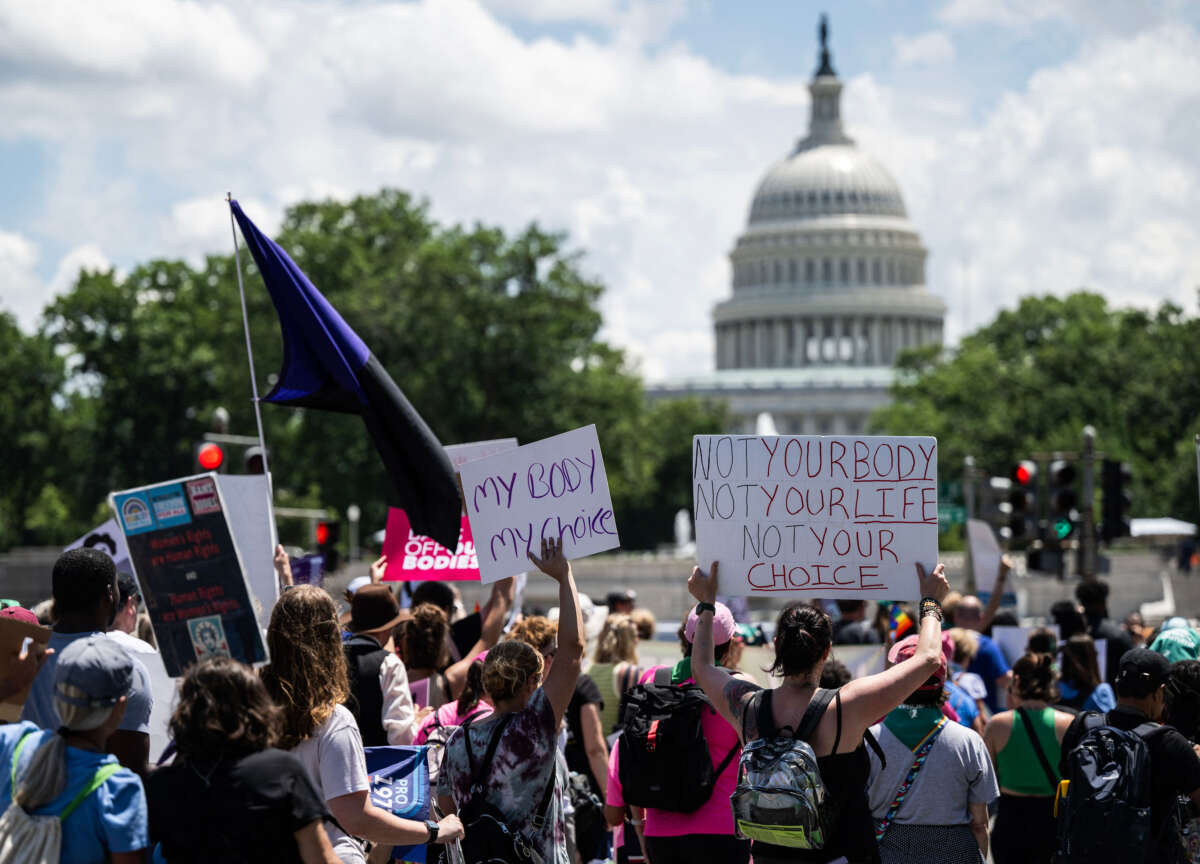Attorneys from the Women’s Law Project have filed the first-ever amicus curiae brief urging the U.S. Supreme Court to reconsider its decision in Dobbs v. Jackson Women’s Health Organization, the case that overturned Roe v. Wade. The brief was filed on behalf of law professors David S. Cohen, Greer Donley, and Rachel Rebouché in Moyle v. United States, a case that focuses on providing essential medical care to pregnant people at Medicare-funded hospitals. At the heart of the brief is the argument that Dobbs is not “workable,” which means it is inherently flawed and impractical and therefore should be overturned.
“Dobbs has absolutely wreaked havoc on all different kinds of obstetrical and gynecological care, including abortion but far beyond just abortion,” said Susan J. Frietsche, the co-executive director of the Women’s Law Project. “Our brief looks at what happens when states — all of which have different definitions of abortion, by the way — are left without guidance about how to treat obstetrical emergencies.”
Frietsche says the Women’s Law Project has met with dozens of women who were denied obstetrical care in emergency situations, because of the misapplication and overbreadth of state’s abortion laws. The Dobbs ruling has also raised complex constitutional questions concerning issues such as federalism, preemption, and federal executive power.
“The stories are truly heartbreaking and disgraceful,” said Frietsche. “If you have a rule [that’s] effect is in conflict with its purpose — its stated purpose — then that’s an unworkable rule.”
Cohen, a constitutional law professor at Drexel Kline School of Law, emphasized the urgency of challenging Dobbs.
“We are so excited and proud to have submitted this brief to the Court cataloging the horrors and chaos that have arisen ever since the Supreme Court overturned Roe,” Cohen said in a press release. “We will not rest until this terrible decision is overturned.”
The implications of Dobbs have been far-reaching. Pregnant people in states like Louisiana are being denied prenatal care due to providers’ fear of legal repercussions. As the national election approaches, Frietsche warns of a looming threat of a nationwide abortion ban. While former President Donald Trump has said he would not endorse a nationwide ban if elected for a second term, Frietsche says it is still possible.
“It would be possible for Congress to pass a ban on abortion that would affect all 50 states,” Frietsche said. “It is conceivable that a president could even make a decision to enforce the Comstock Act, the 1873 archaic [and] largely inoperative statute that bans the interstate mailing of materials used in abortion. So it’s possible that we could get a nationwide abortion ban within … five [years].”
Moyle v. United States argues that Medicare-funded hospitals are obligated under the Emergency Medical Treatment and Labor Act (EMTALA) to provide medically necessary treatment, including pregnancy termination, regardless of state laws restricting abortion. The case is scheduled for oral argument on Apr. 24, with a decision likely to be issued by the end of June.
“This was the wrong direction for the country to take and it needs to be corrected,” Frietsche said.
Prism is an independent and nonprofit newsroom led by journalists of color. We report from the ground up and at the intersections of injustice.
Our most important fundraising appeal of the year
December is the most critical time of year for Truthout, because our nonprofit news is funded almost entirely by individual donations from readers like you. So before you navigate away, we ask that you take just a second to support Truthout with a tax-deductible donation.
This year is a little different. We are up against a far-reaching, wide-scale attack on press freedom coming from the Trump administration. 2025 was a year of frightening censorship, news industry corporate consolidation, and worsening financial conditions for progressive nonprofits across the board.
We can only resist Trump’s agenda by cultivating a strong base of support. The right-wing mediasphere is funded comfortably by billionaire owners and venture capitalist philanthropists. At Truthout, we have you.
We’ve set an ambitious target for our year-end campaign — a goal of $250,000 to keep up our fight against authoritarianism in 2026. Please take a meaningful action in this fight: make a one-time or monthly donation to Truthout before December 31. If you have the means, please dig deep.
